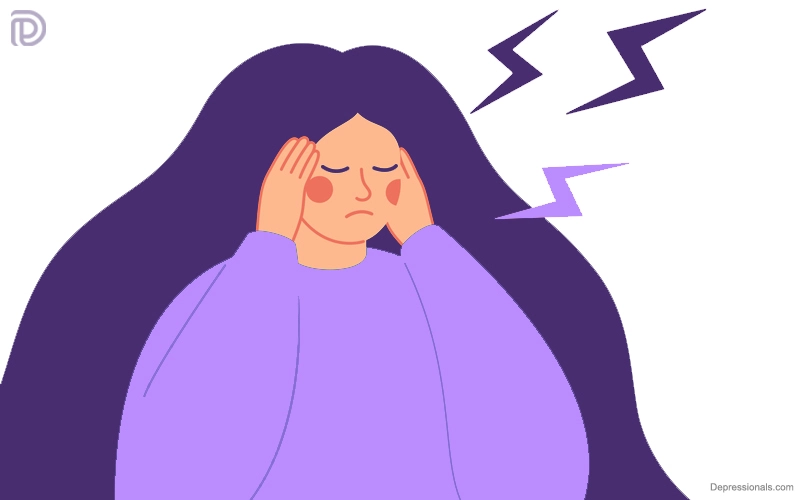Overview
The term fatigue describes a feeling of tiredness and low energy. There’s a difference between this and feeling sleepy or drowsy. The fatigue makes you unmotivated and unenergetic. The symptom of being sleepy is not the same as feeling fatigued.
Fatigue is a symptom of a wide variety of medical conditions, ranging from mild to severe. It’s also caused by certain lifestyle choices, such as not exercising or not eating right.
Consult your doctor if you think your illness is caused by a physical or mental health condition and it cannot be resolved with proper rest or nutrition. You can get help from them diagnosing and treating your fatigue.
Read: Expressive Language Disorder
What causes fatigue?
Fatigue can be caused by many factors. The three main categories are:
- Lifestyle factors
- Physical health conditions
- Mental health problems
Lifestyle factors
If you are fatigued, your lifestyle choices and activities may be to blame. Fatigue can be caused, for example:
- Physical exertion
- Physical inactivity
- Insomnia
- Being overweight or obese
- Periods of emotional stress
- Boredom
- Grief
- The use of drugs such as antidepressants and sedatives
- Regularly drinking alcohol
- Cocaine and other illicit drugs are used
- Excessive caffeine consumption
- Eating an unhealthy diet
Read: Childhood Disintegrative Disorder
Physical health conditions
Fatigue can also be caused by a variety of medical conditions. Here are a few examples:
- Anemia
- Arthritis
- Fibromyalgia
- Chronic fatigue syndrome
- Colds and influenza are common infections
- Addison’s disease affects your hormone levels
- An underactive thyroid or hypothyroidism
- Insomnia and other sleep disorders
- Anorexia and other eating disorders
- Autoimmune diseases
- Irritable bowel syndrome
- Cancer
- Diabetes
- Kidney disease
- Liver disease
- Chronic obstructive pulmonary disease (COPD)
- Emphysema
Read: Alice in Wonderland Syndrome
Mental health problems
It can also be caused by mental health conditions. Stress, anxiety and depression can all affect fatigue.
When should you see your doctor?

Whenever you feel fatigued and have the following fatigue symptoms:
- Make an appointment with your doctor
- Your fatigue isn’t related to anything I can think of
- An abnormally high body temperature
- Unexplained weight loss
- Especially sensitive to colder temperatures
- Sleeping problems regularly
- Feel depressed
If you’ve undertaken all the common lifestyle changes, such as getting enough rest, eating well, and not overexerting yourself without success, and your fatigue has persisted for at least two weeks, contact your doctor.
There are times when fatigue is a sign of a serious medical condition. The following symptoms should prompt you to go to the hospital when you have this along with them:
- Rectal bleeding
- Vomiting blood
- Severe headache
- Chest pain
- Feeling faint
- Irregular heartbeat
- Shortness of breath
- Back, pelvic or severe abdominal pain
- Suicidal or self-harming thoughts
Read: Dyslexia
What treatment will your doctor recommend for fatigue?
The treatment plan recommended by your doctor will depend on the cause of your illness. They may ask you about the following to make a diagnosis:
- The type and severity of your fatigue, as well as when it started and whether it changes over time
- Symptoms that you have been experiencing
- Conditions you have that require medical attention
- Stress sources and your lifestyle
- Taken medications
They may order some medical tests if they suspect you have an underlying medical condition that causes weakness. A blood test or urine test, for example, maybe ordered.
Read: Delusional Parasitosis
What lifestyle changes can help reduce fatigue?
Many measures can be taken to reduce fatigue caused by daily activities. You can do the following to improve your energy and overall health:
- Stay hydrated by drinking enough fluids
- Eat healthily
- Regularly exercise
- Don’t oversleep
- Stay away from known stressors
- Try not to overbook your social or work schedule
- Exercise, such as yoga, can be relaxing
- Do not consume alcohol, tobacco or illegal drugs
You can ease by modifying your lifestyle. If you have been diagnosed with a health condition, you should follow your doctor’s treatment plan. Fatigue can adversely affect both your physical and emotional health if it is left untreated.





